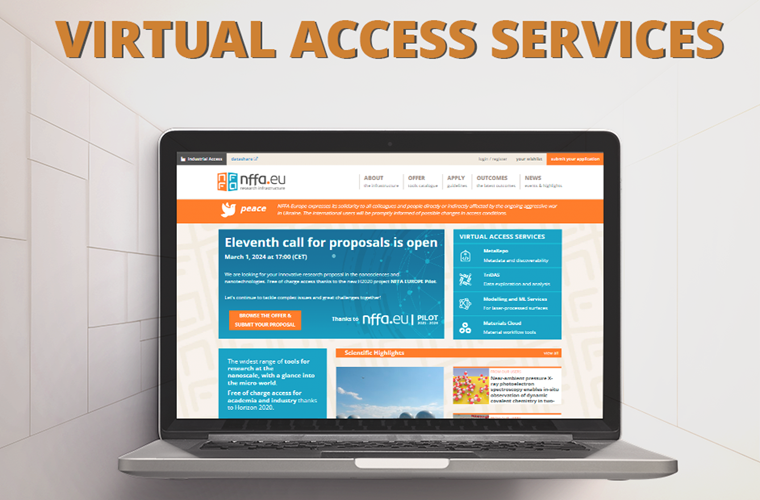NFFA-Europe launches new online services for Nanoscale Research

This network of infrastructures for nanoscience research, where the UAB Miscroscope Service and the UAB Research Park participate into, offers now online simulations and machine learning services too, as well as other metadata services.
18/03/2024
NFFA-Europe provides researchers and companies from all regions of Europe with laboratories and services for nanoscale research with techniques that range from the development of theoretical models and numerical simulations with supercomputers, to different processes for the fabrication and characterization of nanoscale structures.
Now, NFFA-Europe is making available to all the science community online simulation services and machine learning, as well as data and metadata services. Right now, the services are centered around the specific use cases, corresponding to the initial necessities for which they were designed. Four new types of services are now available:
MetaRepo is a metadata repository and schema registry that allows the users to validate, save and search documents related to the data shown, making them visible and accessible.
The Trieste Advanced Data Services (TriDAS) is a collection of data services that are based on data analysis and machine learning. Amongst them we can find the Scanning Tunnelling Microscopy (STM) Explorer and the Scanning Electron Microscopy (SEM) Explorer which offer, respectively, the opportunity to see interactive databases of STM and SEM images; STM Similarity and SEM Similarity, services that use CBIR (Content-based image retrieval) to find the most similar image possible from an example; and, lastly, SEM Classifier, which generates an automatic classification from a SEM image, based from a ResNet50 model trained on a dataset of classified SEM images.
Regarding Modelling and Machine Learning, Predictive Serivce allows to predict the morphological nanostructures of laser-processed surfaces from machine learning models. On the other hand, the Damage Treshold evaluation offers a user-friendly interface to interpretate an evaluation of different parameters: photon energies, pulse duration and separation and material thickness on the damage threshold in different metals and substrates.
Finally, we have Materials Cloud, which hosts AiiDAlab, a lightweight web platform that provides a Jupyter-based web environment preconfigured with the AiiDa material informatics to automatize workflows and provenance tracking. In addition, this service comes provided with a preinstalled version of the Quantum ESPRESSO code, along with its corresponding app.
All these online services are offered to registered users.